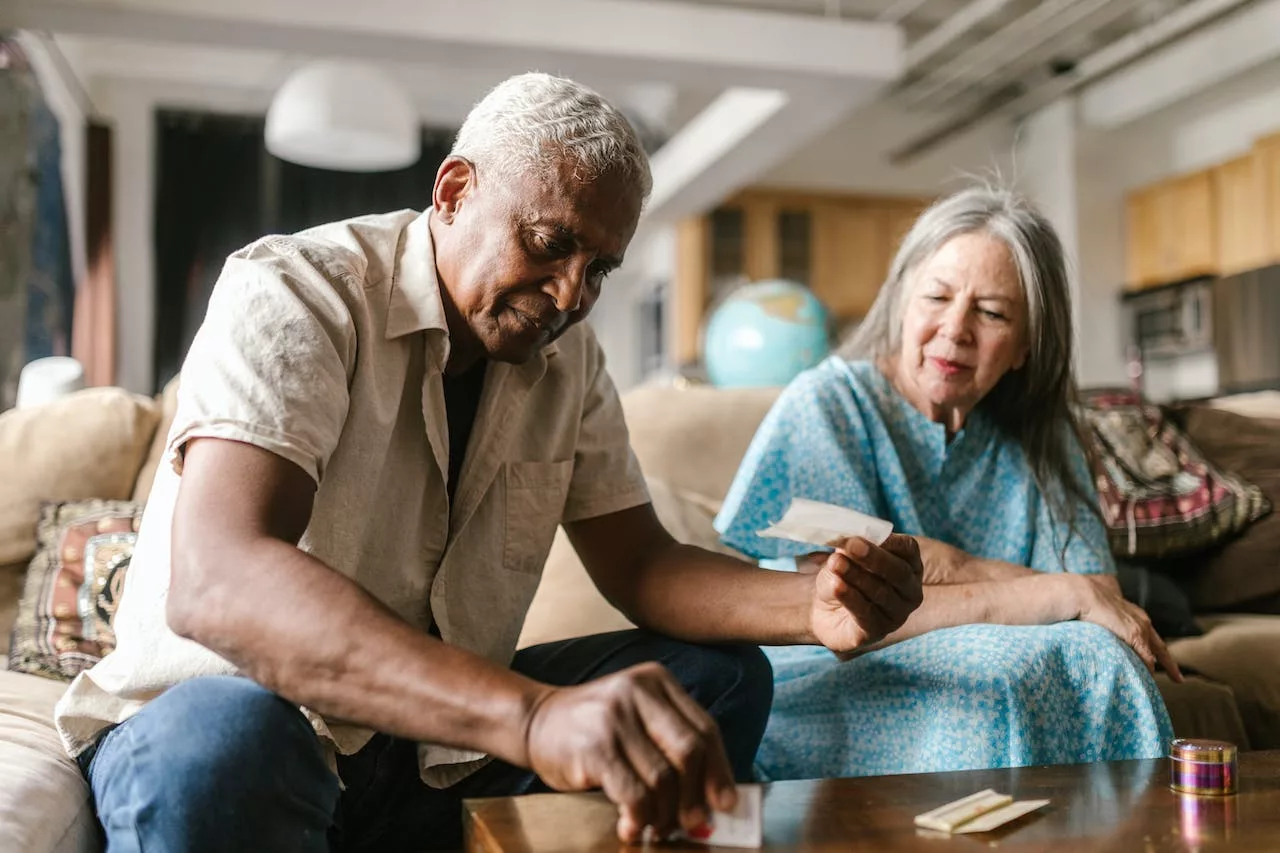Introduction
The excursion through one’s later years often accompanies novel difficulties, including constant pain, diminished versatility, and age-related medical issues. Numerous seniors are exploring alternative strategies to improve their quality of life, and one choice that has gained attention is the utilization of marijuana. In this article, we will examine how marijuana can engage seniors, offering possible advantages in managing medical problems and improving their general prosperity. We will likewise investigate the job of private care for older people at home to ensure a protected and steady climate for seniors interested in exploring this choice.
The Growing Interest in Marijuana for Seniors
The utilization of marijuana among seniors is on the ascent, and there are a few elements contributing to this pattern. For some seniors, marijuana presents a chance to address different age-related difficulties, including constant pain, insomnia, and nervousness, and that’s just the beginning. Here are a few purposes for the increasing interest in marijuana for seniors:
1. Pain Management
Persistent pain is a typical issue for some seniors, often stemming from conditions like joint inflammation, neuropathy, or back pain. Marijuana’s actual capacity as a pain reliever has drawn numerous seniors seeking an alternative to conventional pain medications.
2. Improving Sleep
Rest aggravations are predominant among older people. Marijuana strains with sedative properties might offer a natural method for addressing insomnia and improving rest quality.
3. Anxiety and Depression
Seniors often battle with feelings of nervousness, discouragement, and loneliness. Some cannabis strains have shown guarantee in alleviating these personal difficulties, offering a potential psychological well-being support.
4. Appetite Stimulation
Loss of craving is a typical worry in the senior population. Some marijuana strains can stimulate hunger, which can be particularly advantageous for seniors with diminished food intake.
5. Reducing Medication Use
Numerous seniors endorse various medications, each with incidental effects. Marijuana might give an alternative to a portion of these medications, possibly reducing the general number of medications seniors need to take.
The Job of Private Care for the Elderly at Home
Private care for older people at home assumes a vital part in ensuring that seniors who decide to investigate marijuana as a health choice can do so securely and capably. The following are a few critical parts of how private care can uphold seniors in this excursion:
1. Personalized Care Plans
Private caregivers work intimately with seniors to create individualized care plans. These plans consider every senior’s fascinating well-being needs and inclinations, including using marijuana whenever wanted.
2. Safe Environment
Caregiver assistance creates a protected and comfortable climate at home, which is fundamental for seniors using marijuana. This includes removing any expected perils and ensuring that seniors can consume marijuana with next to no gambling.
3. Assistance with Everyday Activities
Seniors might require help with daily exercises because of their ailments or versatility issues. Private caregivers offer the support essential to guarantee seniors can access and utilize marijuana.
4. Medication Management
If seniors are using marijuana as a component of their well-being plan, private caregivers can aid medication the executives, ensuring they take the appropriate portions at the perfect opportunity.
5. Monitoring for Unfavorable Effects
Caregivers intently screen seniors for any antagonistic impacts related to marijuana use. They can recognize and address any worries quickly to maintain the senior’s prosperity.
6. Emotional Support
Private care suppliers offer everyday encouragement, which can be especially important for seniors who are exploring marijuana for the initial time. Caregivers offer understanding and non-critical direction, ensuring seniors feel comfortable discussing their decisions and concerns.

Capable Marijuana Use for Seniors
While marijuana might offer possible advantages, it’s fundamental for seniors to utilize it mindfully. Here are a few guidelines to consider while exploring marijuana as a well-being choice:
1. Consult with a Healthcare Professional
Before using marijuana, seniors ought to talk with a healthcare supplier to examine their particular well-being needs, expected interactions with different medications, and appropriate measurements.
2. Start Low and Go Slow
Seniors new to marijuana should begin with a low portion and progressively increase it on a case-by-case basis. This approach limits the gamble of antagonistic impacts.
3. Choose the Right Strain
Various strains of marijuana make varying impacts. Seniors should choose strains that align with their health objectives, whether pain the executives, better rest, or profound prosperity.
4. Mind the Method
Seniors ought to consider how they need to consume marijuana, whether through smoking, vaping, edibles, or topicals. Every strategy makes novel impacts and durations, so picking the one that suits their needs is significant.
5. Stay Informed
Seniors ought to remain informed about nearby regulations and regulations surrounding marijuana use. They ought to likewise buy from legitimate sources to guarantee item quality and security.
6. Keep a Journal
Seniors can maintain a diary to follow their marijuana use, documenting the strains, measurements, and impacts. This information can assist them with refining their health plan over the long haul.
Conclusion
As the interest in marijuana for seniors continues to develop, moving toward its utilization with care and responsibility is fundamental. Private care for the elderly at home can assume a significant part in ensuring that seniors have the help and direction they need to investigate marijuana as a well-being choice. With possible advantages in pain the executives, rest improvement, close-to-home prosperity, and craving stimulation, marijuana can engage seniors to have better and more comfortable existences in their later years.









